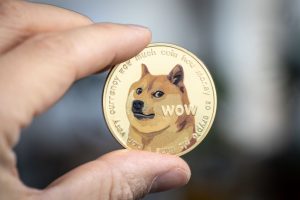Before we talk about the DRC-20, in the context of cryptocurrencies, a technical standard or protocol refers to a set of rules and specifications that define how various aspects of the cryptocurrency system should function.
These standards ensure interoperability, compatibility, and consistency across different implementations and enable different components of the cryptocurrency ecosystem to work together seamlessly.

Here are some commonly used technical standards or protocols in the cryptocurrency space:
1. Blockchain Protocols:
These standards define the rules and algorithms for maintaining a decentralized ledger, such as Bitcoin’s blockchain protocol or Ethereum’s blockchain protocol. They specify how transactions are validated, blocks are added to the chain, and consensus is reached among participants.
2. Token Standards:
These standards define the rules for creating and managing tokens on a blockchain. For example, ERC-20, which we discussed earlier, is a widely adopted token standard for the Ethereum blockchain. Other token standards include ERC-721 (non-fungible tokens) and BEP-20 (Binance Smart Chain).
3. Consensus Algorithms:
These standards determine how participants in a decentralized network agree on the validity and ordering of transactions. Examples include Proof of Work (PoW), used by Bitcoin, and Proof of Stake (PoS), used by various cryptocurrencies like Ethereum 2.0 and Cardano.
4. Interoperability Protocols:
These standards facilitate communication and interaction between different blockchain networks. Examples include the InterPlanetary File System (IPFS) for decentralized storage and the Inter-Blockchain Communication (IBC) protocol for cross-chain interoperability.
5. Wallet Standards:
These standards define the protocols and formats for wallet software to interact with blockchains and manage cryptographic keys. Examples include the Bitcoin Improvement Proposal 32 (BIP-32) for hierarchical deterministic wallets and BIP-39 for mnemonic phrases.
These are just a few examples of the technical standards or protocols in the cryptocurrency space. There are many more specific standards and protocols that address various aspects of blockchain technology, smart contracts, privacy, security, and more. These standards help ensure compatibility, enhance security, and foster innovation within the cryptocurrency ecosystem.
The Introduction Of DRC-20

Bitcoin Ordinals and BRC-20 tokens have not gained significant popularity in the past, despite being modeled after Ethereum’s ERC-20 standard. This protocol allows participants to create fungible and non-fungible tokens on the Bitcoin blockchain.
However, according to Samson Mow, the CEO of JAN3, doubts have been cast on its long-term viability. In a recent interview, he expressed concerns about the unsustainable fees being paid to Bitcoin miners, stating, “These guys are basically paying massive amounts of fees that go directly to Bitcoin miners, and there is no way this can be sustained.”
Nevertheless, a new standard is emerging in the cryptocurrency space. On May 9, DRC-20 tokens were introduced, sharing a similar technical structure with BRC-20 tokens. The developers of Dogecoin, inspired by the BRC-20 standard, are eager to revitalize interest in the original meme coin during this meme coin season.
Following the success of $PEPE, which surpassed Shiba Inu and became the most significant meme coin by market capitalization, activity on the Dogecoin blockchain briefly surpassed that of Litecoin.
Similar to the BRC-20 standard, DRC-20 tokens can be engraved on individual units of Dogecoin, referred to as “Elons,” with 100,000,000 Elons in a Dogecoin. These engravings can contain arbitrary content, resulting in Dogecoin-specific digital artifacts that can function as fungible or non-fungible tokens (NFTs) without the need for a separate token or sidechain.
The Doge Labs account introduced $MOON as the first-ever Dogecoin token following the official DRC-20 standard. Capped at a maximum supply of 21,000,000, it is poised for growth.
In a playful reference to Bitcoin Ordinals, this standard has been humorously named “Doginals” by Cheems, a meme project based on Solana launched on the new DRC-20 standard. Some upcoming meme coins, including Cheems, Dogewow, Misu, Pepe, and Meme, are said to be utilizing the DRC-20 standard.
While some Twitter users are enthusiastic about the potential for 100X gains from DRC-20 tokens, it is crucial for investors to conduct thorough research before investing in any meme coin.
The cryptocurrency market is highly volatile, and meme coins, in particular, are known for experiencing rapid price fluctuations, often leaving token holders with assets of little to no value.
Meme coins are frequently influenced by speculative trading, social media trends, and excitement, rather than traditional fundamental analysis.
Additionally, many meme coins lack underlying assets, revenue streams, or a clear use case, making it challenging to evaluate their long-term prospects using conventional financial criteria.
Summary

In the realm of cryptocurrencies, technical standards or protocols are sets of rules and specifications that govern the functioning of various aspects of the cryptocurrency system.
They promote compatibility and consistency among different implementations, enabling different components of the cryptocurrency ecosystem to seamlessly interact.
Examples of such standards include blockchain protocols (like Bitcoin’s and Ethereum’s), which define how transactions are validated and consensus is achieved, token standards (such as ERC-20 and ERC-721) that establish rules for creating and managing tokens, consensus algorithms (like Proof of Work and Proof of Stake) that determine transaction validity and ordering, interoperability protocols (e.g., IPFS and IBC) facilitating communication between blockchains, and wallet standards that define protocols for interacting with blockchains.
While Bitcoin Ordinals and BRC-20 tokens, modeled after ERC-20, have not gained widespread popularity, a new standard called DRC-20 has emerged for Dogecoin, aiming to revive interest in the meme coin.
However, caution is advised when investing in meme coins due to their speculative nature and lack of traditional fundamental analysis.
Discover more from Dipprofit
Subscribe to get the latest posts sent to your email.



